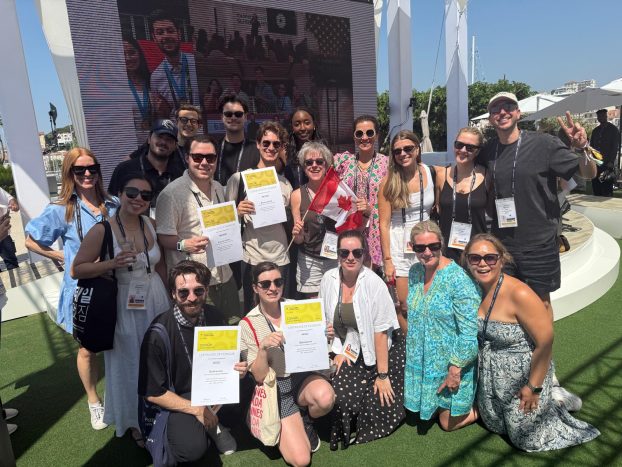When Teresa Cascioli took over Hamilton-based Lakeport Brewing a year ago, its prospects appeared less than effervescent. With market share dwindling, the company had been compelled to file for bankruptcy protection. As the new owner, she needed to do something fast.
"We hit rock bottom," says Cascioli, a venture capitalist whose AlphaCorp Holdings bought an 80% interest in Lakeport last summer. In an effort to get the brewery back on its feet, she immediately set about focusing its heretofore scattered marketing efforts, with help from Toronto-based agency Brandworks International.
Cascioli’s goal for summer 2000 is to restore the market share that Lakeport lost during its troubles last year. To this end, the eight-year-old brewery will spend "significant" marketing dollars for the first time in its history, launching two major new campaigns for the Ontario market in the weeks ahead.
One of Cascioli’s major strategies, as Lakeport president and CEO, has been to "rationalize" those brands that aren’t selling well. She has cut off the brewery’s U.S. distribution, and suspended production of its export product Truly Canadian, as well as the McGinty’s and Wolfgang brands. This is to allow the company to focus its marketing efforts on two proprietary brands: Lakeport and Brava.
Lakeport is a family of five beers – Ice, Dry, Pilsner, Strong and Light – which, when they were introduced, established a new category of "discount" beers. Typically, these brands sell for about $5 less per 12-pack than Canadian, Blue or Budweiser.
Lakeport plans to promote this everyday low price policy with a radio and print campaign scheduled to break at the end of May. The ads will play off the summer price promotions of the big breweries, with headlines such as "Beer Sale. Only 365 Days Left." The campaign tagline is "It just tastes incredibly expensive."
Brava, meanwhile, is a Mexican-style beer. The brand enjoyed a successful launch last summer, supported by a radio and outdoor campaign from Brandworks. In fact, according to the agency’s president, Bill MacDonald, Brava flew off the shelves so quickly that Lakeport ran out of the clear glass bottles in which it packages the brew, and had to shift temporarily to green bottles.
This summer’s campaign will employ the same media strategy and tagline ("Mexican Olé with a Canadian Eh!"), and will resurrect the cocky "Brava Guy" character who appeared in last year’s radio ads. The positioning, however, will shift somewhat.
In research, Cascioli says, Lakeport discovered that Brava actually appeals to a 19-35 demographic, rather than the narrower 19-24 age group targeted by the launch campaign. (Both client and agency agreed that a bold campaign aimed at a young audience was the best way to get the new brand noticed in its first year.)
This year, accordingly, the Brava Guy will grow up. Yes, he’ll still be singing the praises of his favourite beer in the radio spots – but now he will do it on the deck of his Muskoka cottage, or during a party at his broker’s house.
"He’s no longer that anti-establishment kid who’s just graduated," MacDonald says.
The brand has also received a packaging makeover. Cascioli says focus group research indicated that the original Brava packaging was too feminine for guys, and lacked a "summery" quality – an important consideration for a brand that competes with such imported Mexican beers as Corona, Sol and Dos Equis. So new packaging, which makes its debut in May, boasts stronger use of yellow and black, along with a touch of "Aztec" styling.
Another major move on the packaging front is Lakeport’s recent decision to begin selling Brava in cans as well as bottles – something no other beer in this particular segment does. Cascioli says the brewery’s efforts to promote the new packaging will play up the fact that beer chills faster in cans than in bottles, something that matters a great deal to beer drinkers on hot summer days. The new cans will be featured in some of the Brava outdoor ads.
May will also see the launch of a Brava Web site. Lakeport will employ the site to extend its market research activities – tracking hits, running surveys and soliciting feedback from Brava drinkers.
On the retail front, meanwhile, the brewer intends to continue its current strategy – one that differs significantly from that of its major competitors.
Typically, brewers attempt to build a base of support for a brand in bars. Lakeport, however, doesn’t sell through licensees at all – only through Liquor Control Board of Ontario (LCBO) stores, and The Beer Store chain. "We’re a home consumer beer," Cascioli explains. "We cater to the client who’s a family person, who has people over for a barbeque."
What’s more, Lakeport sells a much larger volume of its product through LCBO stores than the big breweries. In all, the government-owned outlets account for 40% of Lakeport’s total retail sales.
That’s a substantial difference, given that sales through LCBO stores offer lower returns. (According to John Wiggins, chair of the Ontario Association of Small Brewers, a brewery will end up paying approximately $1.50 to sell a 12-pack through a Beer Store outlet, and nearly a dollar more on the same case in an LCBO store.)
Cascioli, however, regards the cut in her margin as a marketing expense. As she explains, the provincial liquor stores allow brewers access to a variety of promotional options – including display space and sampling programs – that can assist them in their efforts to build a customer base. Those opportunities just aren’t available in Beer Stores.
For the summer ahead, Lakeport plans an intensive program of samplings and in-store promotions at LCBO outlets. The brewer has also begun to invest in golf-related promotional efforts, including the sponsorship of holes at various tournaments and charity events.
The net result of all these marketing efforts, Cascioli predicts, should be a quadrupling of Lakeport’s market share from the period of its bankruptcy. She expects the company to show a profit this fiscal year.
Lakeport has a capacity of 660,000 hectolitres. In addition to producing its proprietary brands, the brewery also prepares and packages products for companies such as Great West Distillers (makers of Mike’s Hard Lemonade), and produces private-label de-alcoholized beer for the grocery chains Metro-Richelieu, Sobeys and Loblaws.
For all the new initiatives underway, the company still faces a tough road ahead. Hamilton has never before had a successful hometown brewery.
Still, with stabilized sales and a better-grounded marketing strategy, Lakeport might just be in a position to snap that losing streak. "The community is very loyal to this brewery," she says.




























